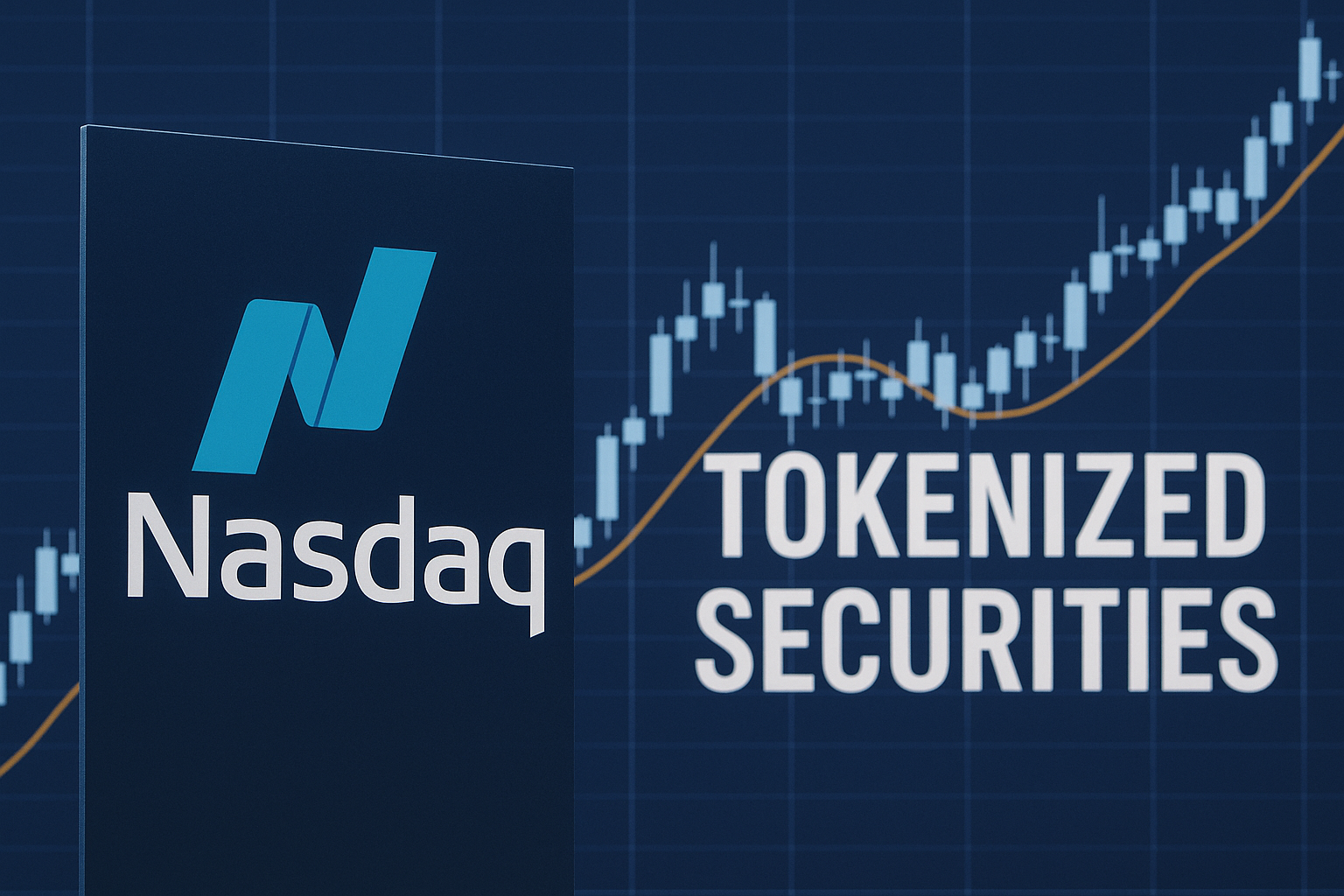
In a landmark move that could reshape global finance, Nasdaq has submitted a proposal to the U.S. Securities and Exchange Commission (SEC) seeking approval to launch trading of tokenized securities on its main market. This initiative marks a pivotal step toward bridging the gap between traditional financial markets and blockchain-based digital assets.
The Shift Toward Tokenization
Tokenization refers to converting ownership of assets—such as stocks, bonds, or real estate—into digital tokens recorded on a blockchain. These tokens can then be traded much like cryptocurrencies, but with the transparency and regulatory oversight of conventional markets. Proponents argue that tokenization can improve efficiency, reduce settlement times, and open investment opportunities to a broader pool of investors.
By moving into tokenized securities, Nasdaq aims to position itself as a leader in the next evolution of capital markets. If approved, it would be one of the first major stock exchanges to integrate blockchain technology into its core operations.
Regulatory Implications
The SEC’s response to Nasdaq’s proposal will be closely watched. Regulators have long been cautious about digital assets, citing concerns about investor protection, market manipulation, and cybersecurity risks. However, with institutional investors increasingly calling for regulated blockchain solutions, pressure is mounting on U.S. regulators to modernize existing frameworks.
Approval could set a precedent for other exchanges worldwide, encouraging more integration of blockchain into financial systems while also accelerating the global push for regulatory clarity in the digital asset sector.
Market Impact
The move has already sparked significant debate among financial analysts. Supporters believe tokenized securities could:
Reduce transaction costs and middlemen in trading.
Improve liquidity for traditionally illiquid assets.
Enhance transparency and traceability of ownership.
On the other hand, skeptics warn of technical risks, regulatory hurdles, and the challenge of ensuring interoperability with existing financial systems. Still, even critics acknowledge that Nasdaq’s entry signals a shift that other major exchanges may soon follow.
The Bigger Picture
Nasdaq’s proposal comes at a time when digital assets are increasingly moving from speculative instruments to institutional-grade financial tools. Tokenization is being tested in areas such as private equity, real estate, and even central bank digital currencies (CBDCs). With one of the world’s largest exchanges now pushing forward, mainstream adoption appears closer than ever.
Nasdaq’s push to bring tokenized securities trading to its main platform is more than just a technological upgrade—it is a strategic bid to define the future of global capital markets. If the SEC approves, the move could transform how investors access, trade, and manage assets, ushering in a new era of blockchain-powered finance.